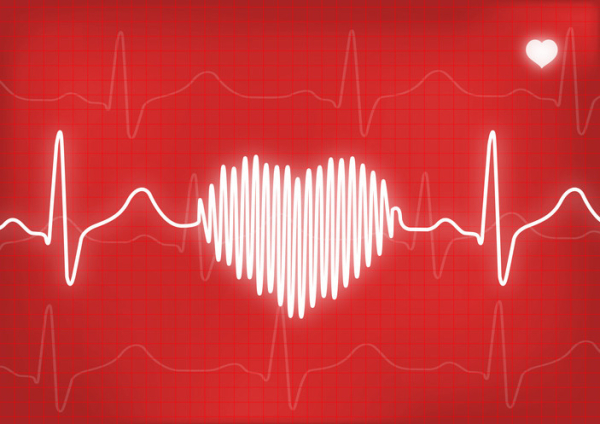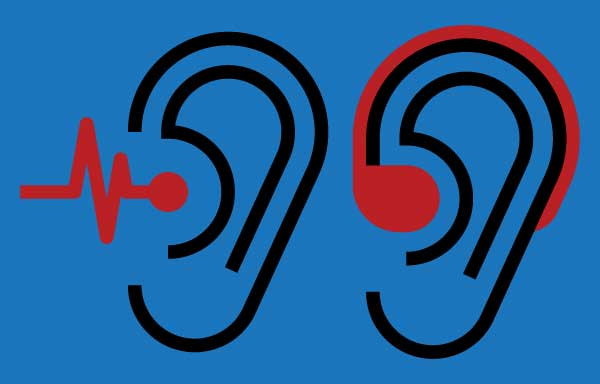
Love isn’t the only reason your heart may skip a beat. While abnormal heartbeats can be alarming, they’re usually harmless. They occur for different reasons. Which types are common — and when should you be concerned?
Palpitations
Your heartbeat normally keeps a predictable pace: speeding up when you’re active and slowing down when you rest. But many people notice odd heart sensations called palpitations at least once in a while. People usually say it feels as though their heart has skipped a beat, or is racing or pounding.
“One common scenario is a person who feels their heart is racing, but if you look at their electrocardiogram (ECG), It’s totally normal,” says cardiologist Alfred E. Buxton, professor of medicine at Harvard Medical School.
A heightened awareness of normal heart rhythms may occur more in people who wear smartwatches with heart rate monitors, he adds. “People with a resting heart rate of 60 beats per minute are concerned when their heart rate goes up to 90, but that’s still in the normal range,” he says.
Ectopic beats
The sensation that your heart has skipped a beat also occurs when the heart’s upper chambers (atria) or lower chambers (ventricles) contract slightly earlier than normal.
During the next beat, the atria pause a bit longer to get back into a normal rhythm. The heart’s lower chambers (ventricles) then squeeze forcefully to clear out the excess blood that accumulates during that pause. They also can contract earlier than usual, which may make you feel like your heart has briefly stopped and restarted.
Known as ectopic beats, both types of these premature contractions may cause a brief pounding sensation. However, this is nothing to worry about. “I often tell my patients that the fact they feel these beats is usually a sign that their heart is healthy. A weak, sick heart can’t exert a forceful beat,” says Dr. Buxton.
AV block and bundle branch block
Electrical impulses tell your heart to pump. They travel through the right and left sides of your heart. But sometimes the impulses travel more slowly than normal or irregularly, causing a condition called AV block. There are various degrees of AV block, some benign, others associated with extremely slow heart rates that may be dangerous.
Another electrical conduction irregularity is a bundle branch block. This results from an abnormal activation pattern of the ventricles that squeeze blood out of the heart to the rest of the body. The most common is right bundle branch block, which usually doesn’t cause obvious symptoms. It may be spotted during an ECG, and can simply reflect the gradual aging of the heart’s conduction system. However, sometimes a right bundle branch block is caused by underlying damage from a heart attack, heart inflammation or infection, or high pressure in the pulmonary arteries.
A left bundle branch block may occur as an isolated phenomenon, or may be caused by a variety of underlying conditions. In some cases, left bundle branch block may lead to abnormal function of the left ventricle, a condition that is sometimes corrected by special pacemakers.
Atrial fibrillation
An electrical misfire in the atria can cause atrial fibrillation, an uncoordinated quivering of the atria that raises the risk for stroke. Commonly known as afib, this heart rhythm problem can come and go, lasting only a few minutes or sometimes for days or even longer. And while some people report a fluttering sensation in their chest or a rapid, irregular heartbeat during an episode of afib, other people don’t have any symptoms.
Certain smartwatches that can record a brief ECG may be able to detect afib. But Dr. Buxton says they’re not sensitive or specific enough to reliably diagnose the problem. “Sometimes the watch tells you that you have afib when you don’t, or vice versa,” he says.
The heart rate monitoring feature may be helpful, however. In people younger than 65, the heart rate can soar to 170 beats per minute or higher during a bout of afib. But for those in their 70s and 80s, who are more likely to have afib, the heart rate usually doesn’t get that high.
When should you be concerned about irregular heartbeats?
An irregular heartbeat, such as racing, fluttering, or skipping a beat, is usually harmless. Even in cases when palpitations are frequent and bothersome (which occurs rarely), reassurance may be the only treatment needed.
But you should contact your doctor if you notice other symptoms accompanying an unusual heartbeat, such as feeling
- chest pain
- dizzy
- lightheaded
- tired
- breathless
- as though you’re going to faint.
People who have been told they have a bundle branch block may need periodic ECGs to monitor their condition. They should also be alert to symptoms such as dizziness or fainting, which can happen if the blockage worsens or occurs on both sides and causes a low heart rate.
About the Author

Julie Corliss, Executive Editor, Harvard Heart Letter
Julie Corliss is the executive editor of the Harvard Heart Letter. Before working at Harvard, she was a medical writer and editor at HealthNews, a consumer newsletter affiliated with The New England Journal of Medicine. She … See Full Bio View all posts by Julie Corliss
About the Reviewer

Robert H. Shmerling, MD,
Senior Faculty Editor, Harvard Health Publishing; Editorial Advisory Board Member, Harvard Health Publishing
Dr. Robert H. Shmerling is the former clinical chief of the division of rheumatology at Beth Israel Deaconess Medical Center (BIDMC), and is a current member of the corresponding faculty in medicine at Harvard Medical School. … See Full Bio View all posts by Robert H. Shmerling, MD



